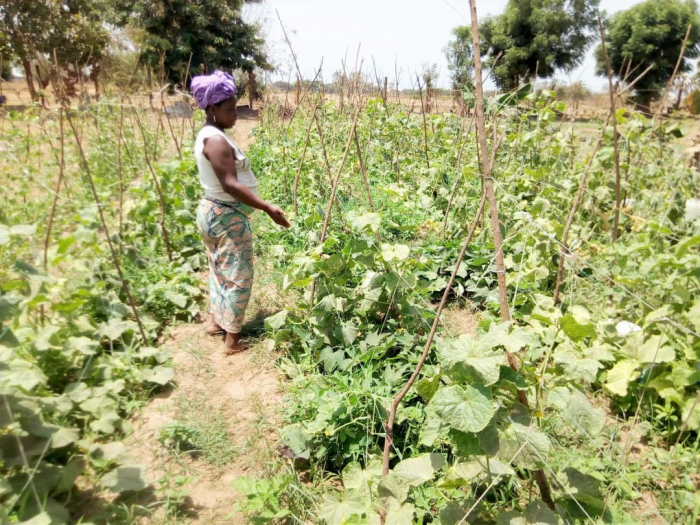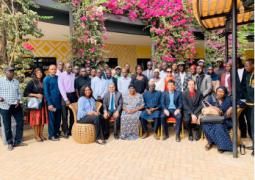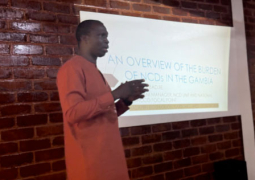
The initiative is under its West African Competitiveness Project (WACOMP) Project funded by the European Union (EU).
UP secured funds from the EU to implement the WACOMP Value Chain Strengthening in the Gambia. The project seeks is to strengthen the competitiveness of West Africa and enhance the countries’ integration into the regional and international trading system.
Ms. Lumana Kamashi, EU WACOMP project rep, said the project is complementary to the EU's ongoing support in horticulture, focusing on the onion value chain strengthening.
The project, she added, aims to directly address the market needs, saying it is supporting 21, 000 vegetable growers through marketing federations.
“For sustainability purposes, the project continues to implement activities using the farmer field school approach with the aim to support 120 people. The approach encourages peer knowledge sharing through demonstrations in the vegetable gardens”
Ms. Kamashi indicated that the approach also promotes timely and efficient field-based knowledge sharing among vegetable growers and ensures practical implementation of good agriculture practices (GAP) and climate agriculture for resilience (CSA).
“Berefet women group has shown beyond reasonable doubts that the knowledge and skills provided through various training was a step in the right direction.”
Tim Kellow, UP country director expressed delight while stating that the project showcase their work for the past years.
“We cannot do this without the donors that help in achieving the goal.”
Mr. Kellow described the day as a learning day and wants the women to learn from the achievements of Berefet gardeners.
Ngansa Touray, project manager from UP, explained that the convergence was meant to celebrate the achievement of farmers in Berefet.
“Most of the communities were not practicing what they were taught. During our visit to farmers in their gardens, we realized that among all the regions, Berefet did the best and is the reason for the convergence.”
Madam Touray indicated that ‘if the country cannot export onion’, then they should be able to stop the importation and consume what we grow.’
She revealed that a study shows that about 85% of the onions consumed in our hotels are from neighboring countries.
“UP will continue to lobby for funds in order to help the women and to strengthen the water irrigation system in all gardens.”
UP also works with Trust Agency for Rural Development (TARUD), Freedom from Hunger Campaign (FFHC) and Njawara Agriculture Training Centre (NATC).
Read Other Articles In National News

MOPE, ISA engage stakeholders on solar energy framework in Gambia
Feb 22, 2024, 11:22 AM




